-


The Original Crockpet Diet™ Ebook and Recipes
The Original Crockpet Diet™ Ebook and Recipes
Vendor:Dr. Ruth's Courses(42)Regular price $49.00 USDRegular priceUnit price per$97.00 USDSale price $49.00 USDIgnite the Chef in You for a Healthier, Happier Pet Are you tired of commercial pet food options that leave you guessing about what's really in your fur baby's bowl? Take control of your pet's nutrition with our comprehensive self-paced course! What You'll Learn🌟 TOCPD Cooking Essentials: Master the art of crafting balanced, nutritious homemade meals for your pets. Discover rotation diet templates tailored for both cats and dogs, ensuring a well-rounded diet. 🐶 TOCPD For Dogs: From succulent...
Sale -
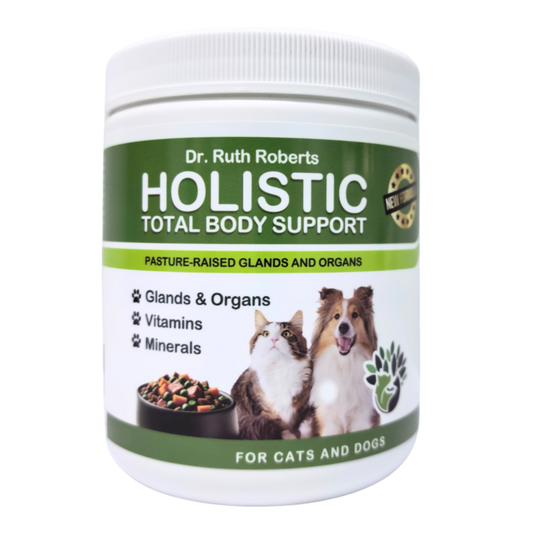
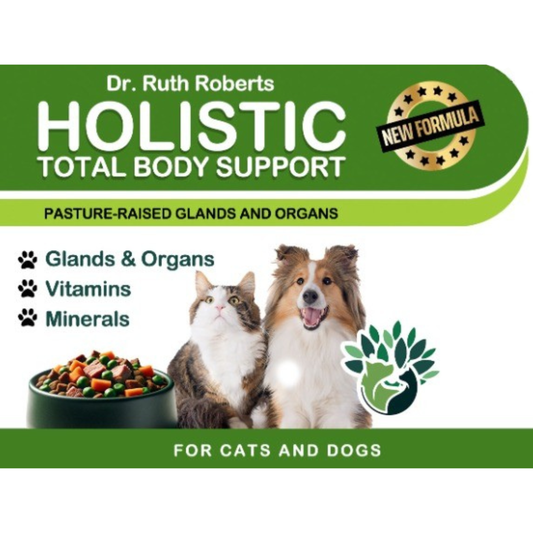
Holistic Total Body Support – Multivitamin & Glandular Support for Dogs and Cats
Holistic Total Body Support – Multivitamin & Glandular Support for Dogs and Cats
Vendor:Dr. Ruth Roberts(42)Regular price $64.00 USDRegular priceUnit price per$64.00 USDSale price $64.00 USD*NEW FORMULAHolistic Total Body Support formulated by Dr. Ruth Roberts is a daily multivitamin for dogs and cats, designed to complement a variety of feeding routines—including home-cooked diet. This powdered blend provides a wide range of essential vitamins, minerals, amino acids, and organ-based ingredients (known as glandular supplement), including calcium citrate for dogs and cats as part of its balanced formula. This versatile multivitamin is often selected by pet parents seeking a nutri...
-
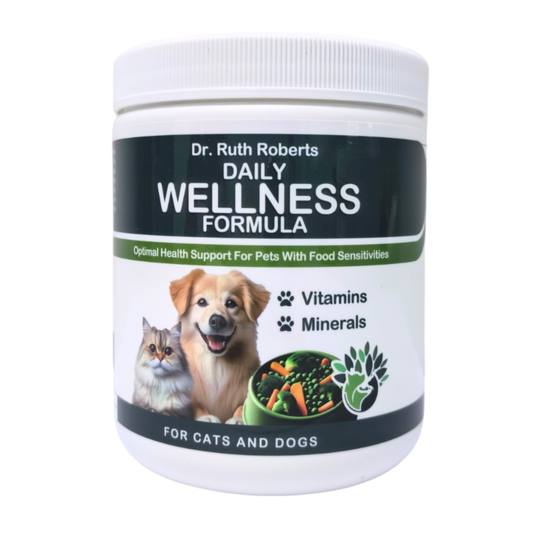

Pet's Daily Wellness Formula - For Pets With Pork/Beef Allergy
Pet's Daily Wellness Formula - For Pets With Pork/Beef Allergy
Vendor:Dr. Ruth Roberts(42)Regular price $54.00 USDRegular priceUnit price per$128.00 USDSale price $54.00 USDPet’s Daily Wellness Formula formulated by Dr. Ruth Roberts is a thoughtfully crafted multivitamin for dogs and cats, designed as a convenient daily addition to your pet’s feeding routine. This formula contains a full spectrum of vitamins, minerals, amino acids, and naturally sourced ingredients—including calcium carbonate for dogs—to help fill common nutritional gaps. It’s especially well-suited for pets with dietary sensitivities, as it’s free of glandular ingredients like beef or pork orga...
Sale -
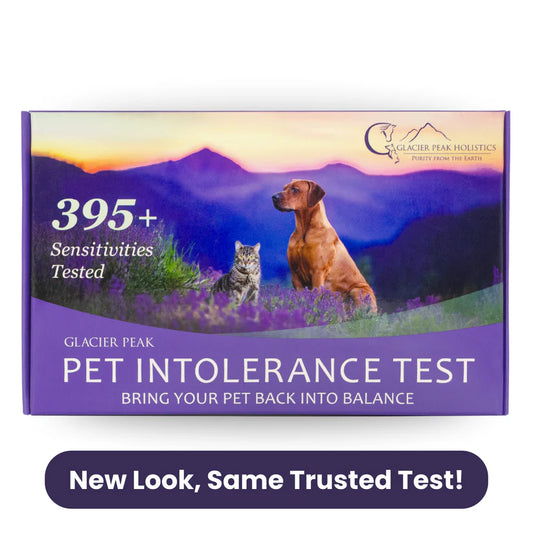
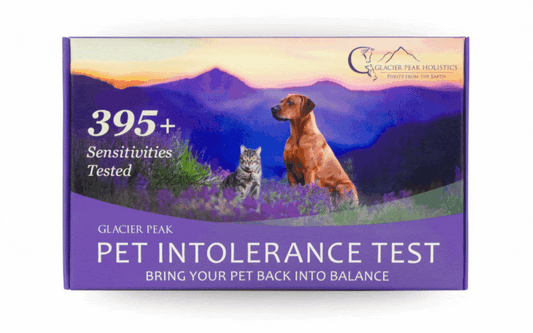
Glacier Peak Pet Intolerance Test (Pet Wellness Life Stress Scan Kit)
Glacier Peak Pet Intolerance Test (Pet Wellness Life Stress Scan Kit)
Vendor:Glacier Peak Holistics(42)Regular price $129.95 USDRegular priceUnit price per$129.95 USDSale price $129.95 USDThis test is not a traditional dog allergy test or DNA testing kit. Unlike traditional pet allergy testing, our test uses Biofeedback technology with hair and saliva samples to identify intolerances and sensitivities. The system is based on over 300 food and environmental factors. With diet change and sometimes a few added supplements, you can help your pets live their best lives. Many people ask us “what can I give my dog for allergies?” Then they invest in cat or dog allergy medicine or e...
-
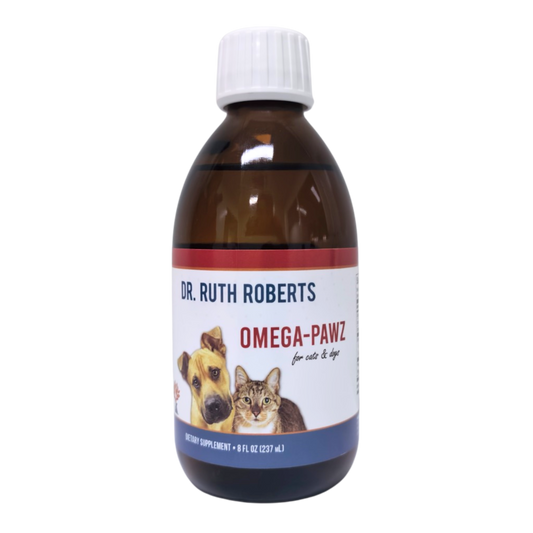
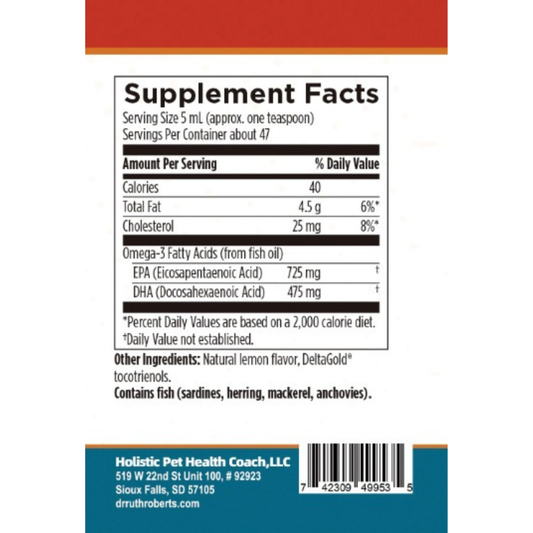
Omega Pawz - Liquid Omega 3 Oil for Dogs and Cats
Omega Pawz - Liquid Omega 3 Oil for Dogs and Cats
Vendor:Dr. Ruth Roberts(42)Regular price $39.00 USDRegular priceUnit price perOmega Pawz by Dr. Ruth Roberts is a liquid omega 3 oil for dogs and cats, thoughtfully made with quality fish oil to complement your pet’s daily feeding routine. This easy-to-use formula includes EPA and DHA, two well-known omega-3 fatty acids found in marine sources. Whether you're looking for omega 3 oil for dogs to include as part of a regular rotation or exploring omega 3 oil for cats for variety in their diet, Omega Pawz offers a simple, pet-friendly option. The light lemon flavor helps ...
-
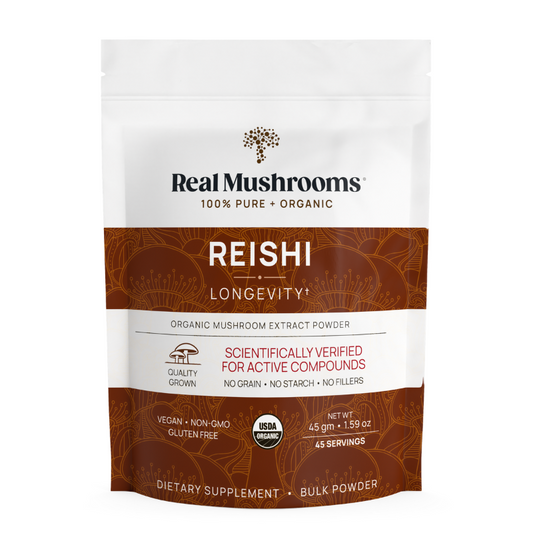
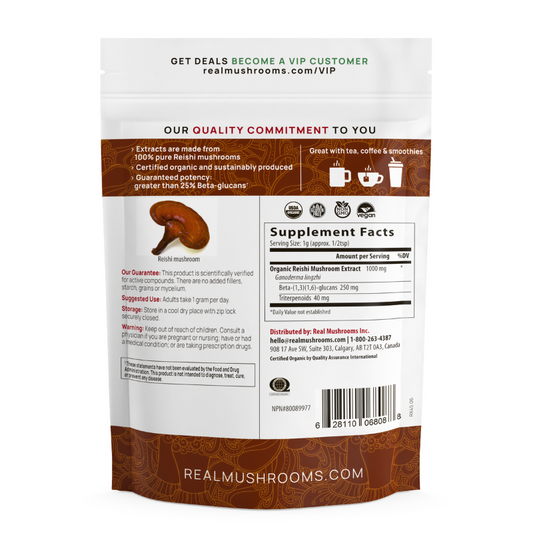
Reishi Mushroom Powder for Dogs & Cats (45 g) - Longevity
Reishi Mushroom Powder for Dogs & Cats (45 g) - Longevity
Vendor:Real Mushrooms(42)Regular price $39.95 USDRegular priceUnit price perReishi mushrooms have a mild taste and can be easily mixed into food, offering a simple way to include this supplement in a pet’s routine. It is recommended to consult with a veterinarian before introducing any new supplements to pets, especially those with specific health or dietary needs. Usage Instructions:Mix the powder into your pet's food according to the recommended dosage based on their weight. Always consult your veterinarian to ensure the product is appropriate for your pet’s indivi...
-
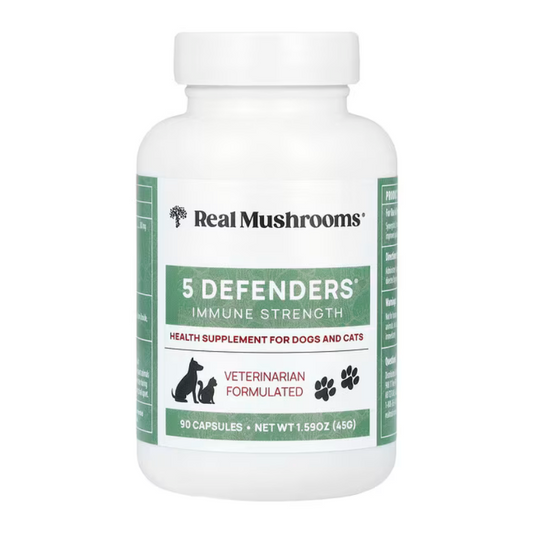
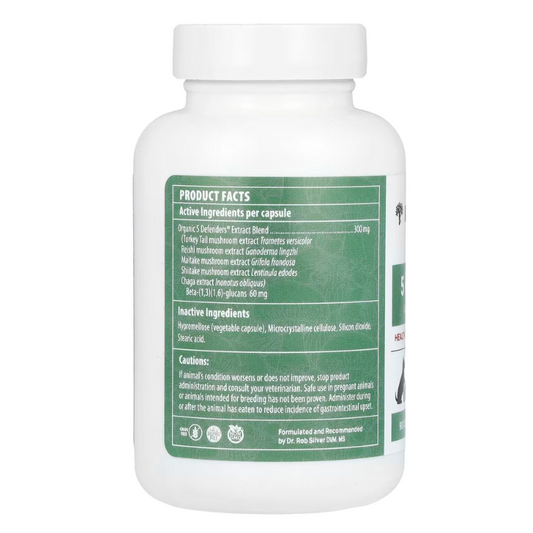
5 Defenders Organic Mushroom Blend Capsules - Immune Support
5 Defenders Organic Mushroom Blend Capsules - Immune Support
Vendor:Real Mushrooms(42)Regular price $36.70 USDRegular priceUnit price per$36.70 USDSale price $36.70 USDReal Mushroom’s Organic Mushroom Blend Capsules offer a natural option that may help support immune function in pets. With a carefully selected blend of organic mushrooms, this supplement is designed for both dogs and cats. Features: Immune Support: Includes mushrooms like Reishi and Maitake, which may help support a balanced immune response. Convenient Capsule Format: Can be given as a capsule or the contents sprinkled onto your pet’s food. Gentle Formula for Pets: Free from artificial ingr...
-
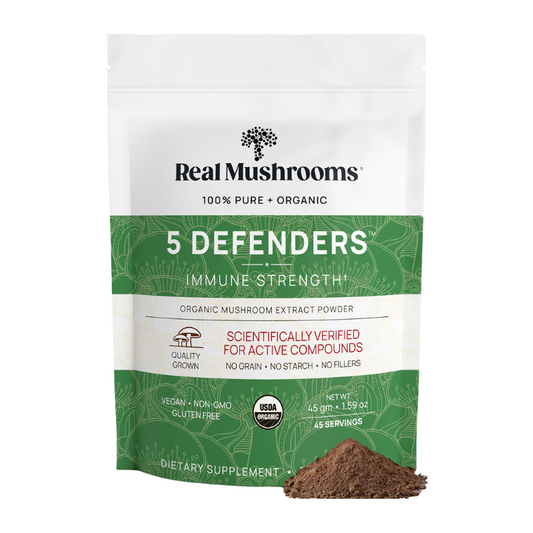
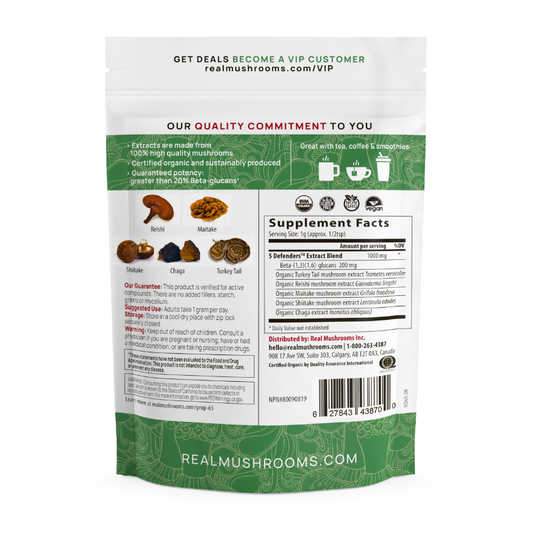
5 Defenders Mushroom Blend Powder - Immune Support
5 Defenders Mushroom Blend Powder - Immune Support
Vendor:Real Mushrooms(42)Regular price $36.70 USDRegular priceUnit price perThis organic blend of mushrooms may help support immune function and vitality in pets. Made with carefully selected mushrooms known for their beneficial properties, it’s an easy way to complement your pet’s daily care routine. Key Features: Immune Support: Contains mushrooms like Reishi and Shiitake, which include natural compounds that may help support a balanced immune system. Rich in Antioxidants: Offers antioxidant properties that may help reduce oxidative stress. Clean and Natural Formu...
LET'S LEARN MORE ABOUT
Autoimmune Disease in Pet
Common Causes and Triggers
Common Symptoms of Autoimmune Disease in Pets
Relief and Management Options
Talk to Us
If you need help with starting up the course or getting access to the recipes and videos, please don't hesitate to contact us via call/text at +213 394 2923 / email drruthroberts@drruthroberts.com.


















